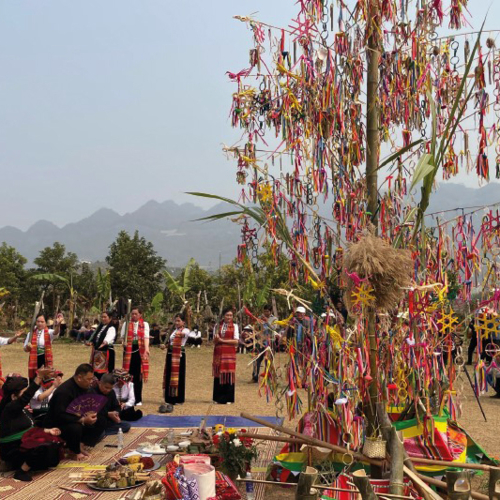Research & Article

Animist Cosmology and Socio-cultural Practices among the Thái in Vietnam: Beyond Superstition.
By Hoàng Cầm
Published on 13 December 2023
Rituals, Traditions, Festival, Cultural Practices, Tai Ethnic Group
Location of original sources
Journal of the Siam Society (JSS) Vol. 111 No. 2 (2023)
Download
Animist Cosmology and Socio-cultural Practices among the Thái in Vietnam: Beyond Superstition.
This paper examines the main features of the animist cosmology of the Thái, an ethnic group of wet-rice cultivators in valleys in northwestern Vietnam and explores how this ontological stance influences their current socio-cultural practices.
The Thái, like many other ethnic groups in Southeast Asia, conceive their surrounding as populated by a variety of spirits, including the spirits of mountains and forests (phii puu, phii paa), ancestors (đẳm pang), the spirit of the house (phii hươn), the spirit of rice (khoăn khảu), and the spirit of the rice terrace (khoăn naa). All spirits are thought of as having person-like features or personhood with full capacity of will, intention and agency. The relation between human being and these person-like sprits is divided but intersubjective.
Unlike the classical understanding of animism, however, the spirits in the Thái cosmos, including ancestors and natural spirits, are not equal but are ranked along a hierarchical scale of power and agency. Although Thái animist practices were previously considered as “superstitious” and “backward’, this animist ontology continues to shape socio-cultural practices among the Thái, and is now considered part of heritage.